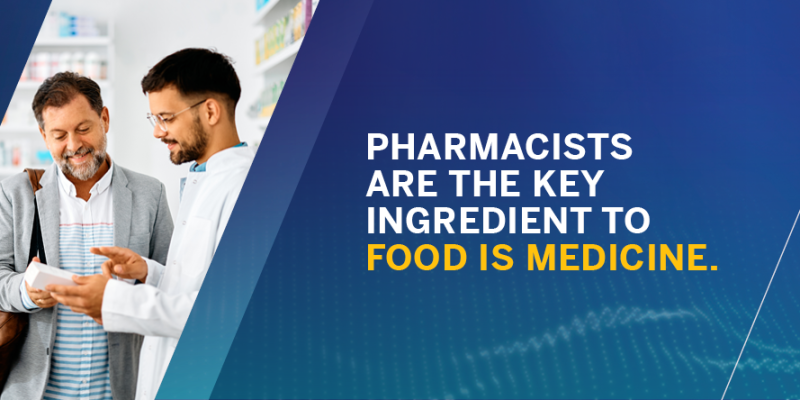
Brian Nightengale, EVP and President, Healthcare
If you’re bullish on the promise of better patient outcomes through comprehensive care that includes improved nutrition -- as I am -- then the Milken Institute’s “Catalyzing Action for Pharmacist-Provided Food Is Medicine Care” will only stir your enthusiasm. For lots of reasons.
It’s a typically thoughtful piece from the Institute; however, their focus on putting pharmacists at the center of this enhanced therapeutic effort is particularly well-founded and presents as an approach to delivering an advanced level of care that is genuinely achievable.
Yes, I’m a pharmacist and, yes, the production of this study was supported by the National Association of Chain Drug Stores, but the 12 recommendations and 34 actions provided stand up to any objective assessment -- and the key tenants supporting centralizing pharmacists in this effort are well known to those of us in healthcare.
Trusted, highly capable and (more) readily accessible to those in need of care, pharmacists are uniquely positioned to facilitate whole-person health and every effort must be made to ensure their full participation in nutritional interventions.
And those efforts must begin with pharmacists being recognized federally as healthcare providers.
Once granted provider status, pharmacists will be able to receive appropriate, and deserved, reimbursement for delivering critically needed services including clinical care, nutritional guidance, health screenings and chronic disease management. Other non-physician healthcare providers receive payment for such services, so why not pharmacists? It’s a question to which I’ve not yet found a satisfying answer.
Making participation in Food Is Medicine (FIM) financially viable for pharmacies will be critical to its expansion and facilitate treatment for a patient population readily accepting of additional pharmacist-delivered services. A recent survey of healthcare consumers by Inmar found 80% of those surveyed reporting they would be comfortable receiving additional medical assistance from a pharmacist, including guidance on nutrition as part of a disease treatment plan.
The financial and human cost of diet-related chronic disease is well documented as is the pathway toward effective FIM interventions. So, now let’s accelerate implementation -- for everyone’s improved wellbeing.
